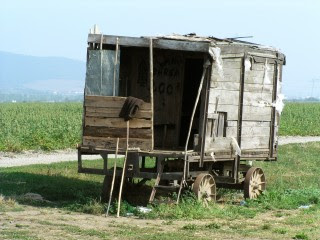Set the scene, New Zealand in the early 1950’s when accommodation options were restricted to hotels, taverns, guest houses and camping grounds.
Les and Mearle Bird were probably the first to build the country’s first motel in Picton in 1952. (Can someone confirm, what was the name of their motel?)In 1958, Neil “Chopper” Summersby with his wife, Jenny opened the Orange Grove Motel, Gisborne’s first self-contained motel and one of New Zealand’s first “modern motels” complete with kitchen facilities. As an early pioneer, Chopper’s success played a major part in paving the way for the rapid growth and improvements in the motel throughout New Zealand over the next 50 + years.About this time motels were booming in the USA and TIME magazine published the following article:
TIME
14 March 1955
TO count the number of first-class hotels built in metropolitan U.S. since the war, all a statistician needs are the fingers of both hands. But to total the number of new motels that have sprouted up around big cities and along U.S. highways, the experts need an adding machine. What was once a sorry second choice for prewar travelers has skyrocketed into one of the biggest and fastest-growing of U.S. businesses.
By last week, as winterbound families started planning their annual vacation motorcade, some 53,000 motels, doing a $1.5 billion annual business, dotted the roads from Maine to California. Of the total, 4,000 were built last year alone. Reasons for the big rise are not hard to find: increased population, higher auto sales, more touring, steady prosperity. But the biggest reason is the fact that U.S. motels are offering luxuries that put most hotels—and a good many resorts—to shame.
Gone are the old clapboard tourist cabins with their cold-water faucets and rickety bedsteads. Today's motelman thinks little of spending $1,000,000 for his neon-lighted palace, where private baths and comfortable beds are as standard as doorknobs. Though the average occupancy rate is still about 70% (about the same for hotels), such a prime vacation place as Las Vegas, Nev. has between 250 to 300 competing motels. Southern California alone has 650; Florida has 4,500, and its motel operators thought the state had all that it could stand 18 months ago. But new motels are still abuilding from Jacksonville to Key West.
To tempt motorists most new motels offer TV and air conditioning, a swimming pool, some kind of food service, children's play areas, and telephones in every room. Says one successful Northwest operator: "People want complete service —a barber, a beauty shop, a car wash—the works." Fort Worth's successful Western Hills Motel (TIME, July 9, 1951) goes a step farther with a separate block of rooms for guests' maids and chauffeurs.
Western Hills Motel
In Santa Monica, Calif, the big $1,500,000 William Tell Motel, which offers a swimming pool, playground, TV and air conditioning, all set in a lush tropical atmosphere, now faces stiff competition from the newer, $600,000 Highlander Motor Hotel, built with all the standard luxuries plus piped-in music, a sun deck, and heated swimming pool.
William Tell Motel
Highlander Motor Hotel
One North Carolina motel keeps its free soft-drink machine available all night, dispenses free hot coffee and doughnuts each morning. The new Georgia and Florida motels have either restaurants or small alcove kitchens (at no extra charge) in their suites. Says the manager of the 96-unit Atlanta Terrace Motel, biggest in the state: "People just won't stop if they have to go elsewhere for food." Others give their guests free morning and evening newspapers, plush communal lounges, playgrounds with shuffleboard, badminton, swings and even horseshoe pits.
Terrace Motel
The motel business is no place for amateurs, and no place for the man who wants to get rich quick. Many motel owners make a good living, but many others, who were dazzled by the first postwar bubble, settled down in poor locations and have either gone out of business or barely make ends meet.
Even the most successful motelmen have problems of rising costs and bitter competition. Since 1945, construction costs have gone up from an average $2,500 a room to nearly $5,500, with 15% of the boost in the last two years.
More and more motels are being built in the center of town —traditionally a hotel preserve. In hotel-short New Orleans the new, $2,000,000 redwood-and-glass Motel de Ville, which has a pool, a cocktail lounge, restaurant and 24-hour room service, is only 15 blocks from the central shopping district, and manages to rack up a 100% occupancy rate. Those who stay outside town struggle for a choice highway intersection, or even a slight rise of ground so that motorists can see them from afar. Wherever a motelman does well, he can soon expect a rival to try to set up an even flossier motel next door.
Motel de Ville
The motel boom shows little sign of slowing down. Around the U.S. last week, some 900 newer and bigger motels were either under construction or in the planning stage. Yet the motelman, eyeing peak auto output and rising tourism, sees nothing but a happy future for the smart operator. Says Seattle's Frank Seal, owner of a 55-room motel that he built in 1947 for $92,200 and now values at nearly $400,000: "It just isn't for sale. This is just too good a thing not to hold on to."
Source:
Click HERE
 OK, so we have left the REALLY big question unanswered - until now!
OK, so we have left the REALLY big question unanswered - until now!


























